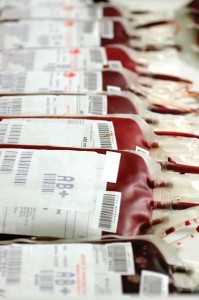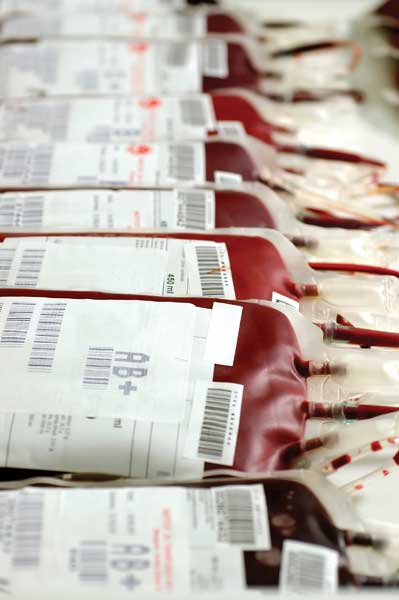By: Rebekah M. Zonozy, MSN, CRNP, RN
The goal of this continuing education activity is to provide nurses and nurse practitioners with knowledge and skills to recognize and manage blood transfusion reactions. Below is an introduction of the topic. Read the article in full online. After reading this article you will be able to:
- Identify risk factors, signs, and symptoms of blood transfusion reaction
- Describe goals of care for a patient with a blood transfusion reaction
- Describe evidence-based nursing and medical management of a blood transfusion reaction
 Blood transfusion therapy can be a life-saving measure for patients; however, there are a variety of complications that can occur both during and after a transfusion that pose serious risk to the patients receiving this therapy. Some of the risks associated with blood transfusions can be life-threatening, and it is for this reason the Food and Drug Administration, the American Association of Blood Banks, and the Joint Commission regulate how blood products are procured, stored, prepared and administered to the recipient. Historically the largest risk posed to a patient receiving a blood product transfusion was the potential for an infectious disease being transmitted. However, with the implementation of nucleic acid testing (NAT) and other advanced infectious disease screening methods, this risk has significantly decreased1. Currently, the risk of Hepatitis B virus (HBV) transmission is estimated to be 1 in 282,000 to 1 in 357,000; the risk of Hepatitis C virus (HCV) transmission is estimated to be 0.03–0.5 in 1,000,000; and for Human Immunodeficiency virus (HIV) the transmission risk is estimated to be 1 in 1.5 to 1 in 4.3 million2. With the decline in the infectious disease transmission risks, the focus on blood transfusion therapy complications has shifted to those of a non-infectious nature, such as blood transfusion reactions. The role of nursing in the identification and management of non-infectious complications related to blood transfusion therapy is absolutely crucial.
Blood transfusion therapy can be a life-saving measure for patients; however, there are a variety of complications that can occur both during and after a transfusion that pose serious risk to the patients receiving this therapy. Some of the risks associated with blood transfusions can be life-threatening, and it is for this reason the Food and Drug Administration, the American Association of Blood Banks, and the Joint Commission regulate how blood products are procured, stored, prepared and administered to the recipient. Historically the largest risk posed to a patient receiving a blood product transfusion was the potential for an infectious disease being transmitted. However, with the implementation of nucleic acid testing (NAT) and other advanced infectious disease screening methods, this risk has significantly decreased1. Currently, the risk of Hepatitis B virus (HBV) transmission is estimated to be 1 in 282,000 to 1 in 357,000; the risk of Hepatitis C virus (HCV) transmission is estimated to be 0.03–0.5 in 1,000,000; and for Human Immunodeficiency virus (HIV) the transmission risk is estimated to be 1 in 1.5 to 1 in 4.3 million2. With the decline in the infectious disease transmission risks, the focus on blood transfusion therapy complications has shifted to those of a non-infectious nature, such as blood transfusion reactions. The role of nursing in the identification and management of non-infectious complications related to blood transfusion therapy is absolutely crucial.
The Institute for Johns Hopkins Nursing is accredited as a provider of continuing nursing education by the American Nurses Credentialing Center’s Commission on Accreditation. This 1.0 contact hour Educational Activity is provided by the Institute for Johns Hopkins Nursing. The Institute for Johns Hopkins Nursing is approved as a provider of nurse practitioner continuing education by the American Academy of Nurse Practitioners: AANP Provider Number 061216. This program has been granted 1.0 contact hours of continuing education (which includes 0.2 of pharmacology hours). Contact hours will be awarded until April 15, 2014. Receive FREE contact hours at www.nursing.jhu.edu/ce.

 You’re Welcome
You’re Welcome Nursing Named Most Trusted Profession for 22nd Consecutive Year
Nursing Named Most Trusted Profession for 22nd Consecutive Year Best of On The Pulse 2023
Best of On The Pulse 2023 From the Dean: Here & Now
From the Dean: Here & Now The Learning Collaborative: ‘I Think I Can, I Think I Can …’
The Learning Collaborative: ‘I Think I Can, I Think I Can …’







